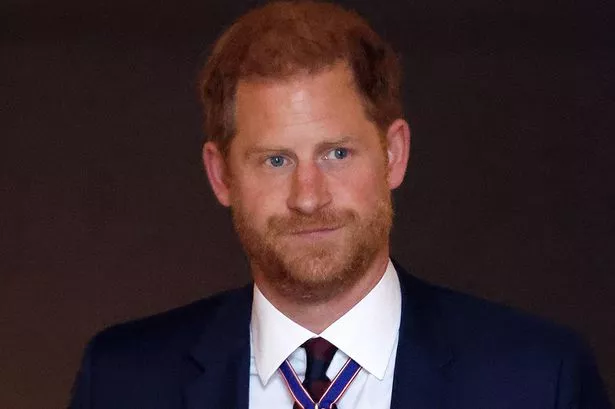The News
King Charles’ Path to Reconciliation with Prince Harry: One Key Condition
A royal expert has recently shed light on the complex relationship between King Charles and Prince Harry, suggesting that any chance of reconciliation is contingent upon a critical condition.
Since 2020, Harry has experienced a growing distance from the Royal Family, a divide that many believe began when Prince William expressed concerns about Harry's swift commitment to Meghan Markle.
This initial worry has since spiraled into a series of dramatic events, including controversies over security, revealing memoirs, and heart-wrenching family news.
The situation took a serious turn earlier this year when King Charles received a cancer diagnosis.
This revelation prompted historian Robert Hartman to discuss the King's newfound sense of vulnerability and the importance of familial unity in a recent interview with the Daily Beast.
Hartman, who has authored a biography on the monarch, emphasized that for any reconciliation efforts to succeed, both Harry and William must be involved.
He pointed out that the King cannot engage in discussions without the agreement of his elder son, William.
In his updated biography, “Charles III, New King, New Court,” Hartman elaborated on this delicate situation.
He noted that while many are eager to understand the King's feelings, it is equally crucial to consider William's perspective.
The intricacies of their relationship complicate any potential paths forward, making it essential that all parties find common ground before proceeding.
The bond between the two brothers has been strained ever since Harry relocated to California with Meghan.
This rift was further exacerbated by the release of Harry's memoir, “Spare.”
Recently, there was a glimmer of hope for reconciliation when William mentioned Harry in a documentary about homelessness.
He shared a heartfelt memory of their mother, Princess Diana, which reignited public interest in their relationship.
Hartman highlighted the historically deep connection shared by the brothers, suggesting that reconciliation might still be possible.
Hartman also reflected on the impact of Charles's health issues on the royal family.
The diagnosis came as a shock, especially considering Kate Middleton's own battle with cancer.
There was a noticeable atmosphere of fragility surrounding the family.
Hartman described how the King faced his diagnosis with composure, drawing strength from his spiritual beliefs.
While the details of their health conditions remain private, it is known that Kate has completed her treatment while Charles continues to fight his illness.
In addition to personal struggles, King Charles has engaged in important discussions with Archbishop of Canterbury, Justin Welby, concerning the latter's resignation amid a scandal involving historical abuse within the Church.
These talks, reportedly held through intermediaries, have centered around Welby's planned departure, which is expected to be formally announced soon.
Sources from GB News indicate that King Charles has approved the process for the Archbishop's resignation, although no official statements have been made yet.
Traditionally, it is anticipated that the King will address the public only after the Archbishop has officially stepped down.
This resignation follows increasing pressure on the Church of England, including a petition that garnered over 10,000 signatures demanding Welby's accountability.
In his statement, Archbishop Welby expressed deep remorse for the Church's past safeguarding failures, acknowledging that the recent revelations had reignited his longstanding feelings of shame.
He admitted that the Church's handling of the John Smith abuse scandal was deeply flawed and pledged to take responsibility for the damage done during his tenure.
The fallout from this scandal has rocked the Church of England, prompting a broader discussion about institutional accountability and the need for reform.
The resignation of Archbishop Welby is seen as a significant step toward acknowledging these failures and addressing the harm caused to victims.
Political figures have weighed in on the matter, with Labour Party leader Sir Keir Starmer stating that victims had been “failed very, very badly.”
Prime Minister Rishi Sunak condemned the allegations as horrific and stressed the need for the Church to take meaningful steps to prevent such abuses in the future.
As the Church faces increasing scrutiny, the resignation of Welby is just one part of a much larger reckoning that many believe is necessary for genuine reform.
With the resignation, the Church of England finds itself at a crossroads.
It must now focus on implementing stronger safeguarding policies and ensuring that victims' voices are heard and respected.
The hope is that this painful chapter will lead to a more accountable institution, but for the victims of John Smith, the journey toward justice remains ongoing.
The implications of these events will likely resonate throughout the Church of England and beyond.
All eyes will be on the clergy, the faithful, and the public as they watch to see if this moment marks a turning point or if the lessons of the past will fade away once more.


































































